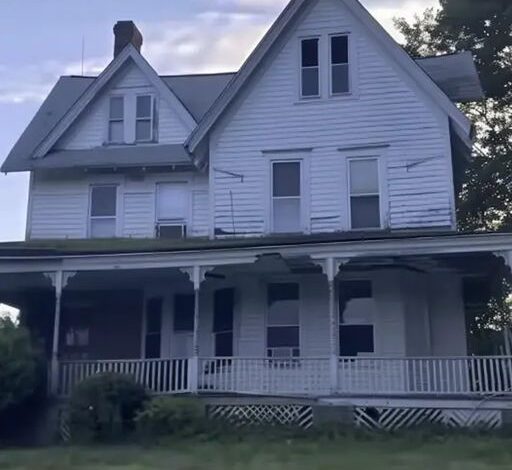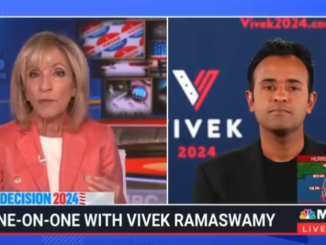One of the most remarkable changes in human evolution is the loss of our tails, a transformation that occurred around 25 million years ago. This pivotal shift not only altered the trajectory of our species but also marked a significant moment in the evolutionary history of primates. While scientists have long speculated on why humans lost their tails, the genetic cause has remained elusive—until now. A recent study published in Nature has finally uncovered the genetic factors responsible for this evolutionary change.

The Quest to Understand Tail Loss
The journey to unravel the mystery of human tail loss began in an unexpected way. Bo Xia, a graduate student at New York University, was inspired to investigate the origins of the human tailbone after injuring his own coccyx. This personal curiosity led Xia and his team to embark on a groundbreaking scientific investigation.
Through careful research, the team focused on the TBXT gene, which plays a crucial role in regulating tail length in various species. Their research revealed a unique genetic mutation within this gene, providing a major breakthrough in understanding human evolution.
The Role of Jumping Genes
A key aspect of this discovery lies in the role of Alu elements, often called “jumping genes.” These genetic elements, specific to primates, can move within the genome and cause significant changes. The researchers found that Alu elements inserted themselves into the TBXT gene, triggering a chain reaction that led to the loss of our tails.
This insertion activated a process known as alternative splicing, where RNA molecules are cut and restructured, which ultimately led to the deletion of a crucial exon. This change altered the structure and function of the resulting protein, leading to the tail loss seen in humans.
Validation Through Mice Studies
To confirm their findings, the researchers engineered laboratory mice with the same genetic mutations found in humans and apes. These genetically altered mice lost their tails, providing compelling evidence that the identified mutation plays a crucial role in the absence of tails in humans and other primates.
However, the study also uncovered a downside to tail loss: an increased risk of neural tube defects, such as spina bifida. This finding highlights the complex balance between evolutionary benefits and potential genetic trade-offs.
The Broader Implications
This discovery has profound implications not just for understanding human evolution, but also for human anatomy and health. The loss of our tails was not a random event but a genetic adaptation with lasting consequences. It illustrates the complex relationship between genetic changes and the way they shape our physiology over time.
As we continue to study our evolutionary past, these findings remind us of the intricate process of natural selection and genetic innovation that has shaped humanity. This breakthrough also underscores the power of scientific inquiry in uncovering the mysteries of our origins, offering insight into the past that can help us understand our future.
The identification of the genetic reasons behind tail loss is a testament to the persistence of scientific exploration and the ongoing quest for knowledge about our evolutionary journey.
My Friend Kicked Me Out of His Wedding, His Reason Stunned Me

So, I sold it. The buyer, Ben, seemed like a good guy—enthusiastic about fixing up the place. We shook hands, and just like that, the house, along with its memories, was no longer mine.
A week later, I received a letter via courier. To my surprise, it was in my grandfather’s handwriting. The paper was yellowed with age, as if it had been sitting, waiting for the right moment to be delivered. My hands shook as I opened it. The message was simple but intriguing: “Check the basement of the house.”
Without wasting time, I called Ben. “Hey, it’s Alex. I need to come by the house—there’s something I need to check in the basement.”
Ben, a little puzzled but still friendly, replied, “Sure, come over. The basement’s just as you left it.”
When I arrived, I barely recognized the house. Ben had already started making improvements. The yard was cleared, and the house had a fresh coat of paint. He greeted me at the door, and we headed straight to the basement. It was still dimly lit and musty, filled with cobwebs and old furniture. Ben watched me search, amused but curious.
“You sure your grandfather wasn’t just messing with you?” he joked.
I was beginning to wonder the same thing. But then, I noticed a loose brick in the wall. Behind it was a small, dusty box containing old letters and a key. Ben peered over my shoulder. “What do you think that key unlocks?” he asked.
“I’m not sure,” I replied. But I had a feeling it was important. After thanking Ben, I took the box and key home, determined to figure out the mystery.
The next day, I returned to the house with a plan. As Ben opened the door, surprised to see me again, I made a bold offer. “Ben, I’d like to buy the house back.”
He raised an eyebrow. “Really? I thought you said it was a burden.”
Taking a deep breath, I explained. “At first, I thought selling was the right choice. But after receiving my grandfather’s letter, I’ve realized this house means more than I ever thought. It’s not just a building; it’s part of my family’s history, a legacy I need to preserve. I can’t let it go.”
Ben considered for a moment. “Well, I’ve already put in a lot of work. You’d have to offer more than what you sold it for.”
I knew this wouldn’t be easy. “How about five grand more?”
Ben shook his head. “Not enough. The market’s good, and I could sell it for a profit. How about twenty grand more?”
My heart sank. Twenty grand was a lot. But I couldn’t lose the house now. “Deal,” I said, though it hurt to agree.
Over the next week, I finalized the paperwork to buy the house back. During this time, I met Clara, a local historian with a passion for old homes. Over coffee, I shared the story of my grandfather’s house, and she was instantly intrigued.
“Your grandfather sounds incredible,” Clara said. “If you ever need help restoring the house or researching its history, I’d love to assist.”
I gratefully accepted her offer. Clara’s enthusiasm breathed new life into my project. Together, we spent hours sifting through old documents, photos, and memories, piecing together the story of the house and its significance.
Finally, with the house back in my name, I returned to the basement, key in hand. Moving aside an old wardrobe, I discovered a hidden door. The key fit perfectly. Behind the door was a small room, and in the center was a modest chest. My heart raced as I opened it, expecting treasure.
Instead, I found a letter in my grandfather’s familiar handwriting and an old poker chip.
The letter read: “I knew you would sell the house, you fool! I always taught you to honor your ancestors and remember your roots. Yet, you sold it off without a second thought. Let this be a lesson to you.”
At the bottom, in a playful tone, it said: “P.S. I put something in here, so here’s an old poker chip—worthless! Consider it a lucky charm.”
I sat there, the letter in hand, disappointed at first, but then understanding hit me. My grandfather, ever the trickster, had orchestrated this whole experience to teach me a valuable lesson. The house wasn’t just about property or money—it was about honoring the past and valuing what truly matters.
With a renewed sense of purpose, I decided to keep the house and turn it into a family retreat. What I once saw as a burden now felt like a treasure—a connection to my roots and a place where future memories would be made.
Over the months that followed, the house underwent a transformation. With Clara’s help, I restored it, blending its old charm with fresh beginnings. The house, once dilapidated, became a place of laughter and love—a symbol of family heritage.
As the final touches were added, Clara and I grew closer, spending more and more time together. The house wasn’t just a part of my past anymore—it had become a symbol of our future, a place filled with love, memories, and the lessons my grandfather had so cleverly imparted.
In the end, my grandfather had left me far more than a house. He’d left me a legacy, a lesson about family, roots, and the importance of holding on to the things that truly matter.



Leave a Reply